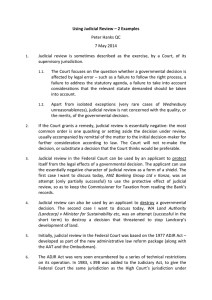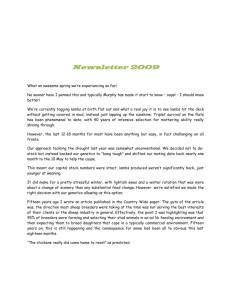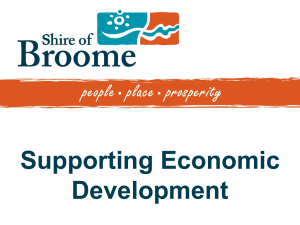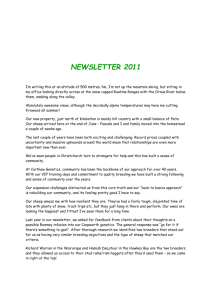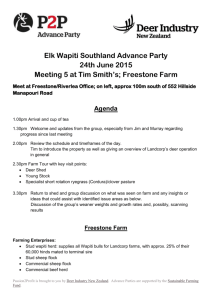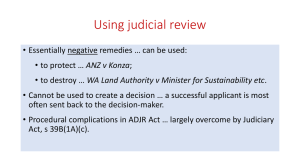International Accounting Standards Board
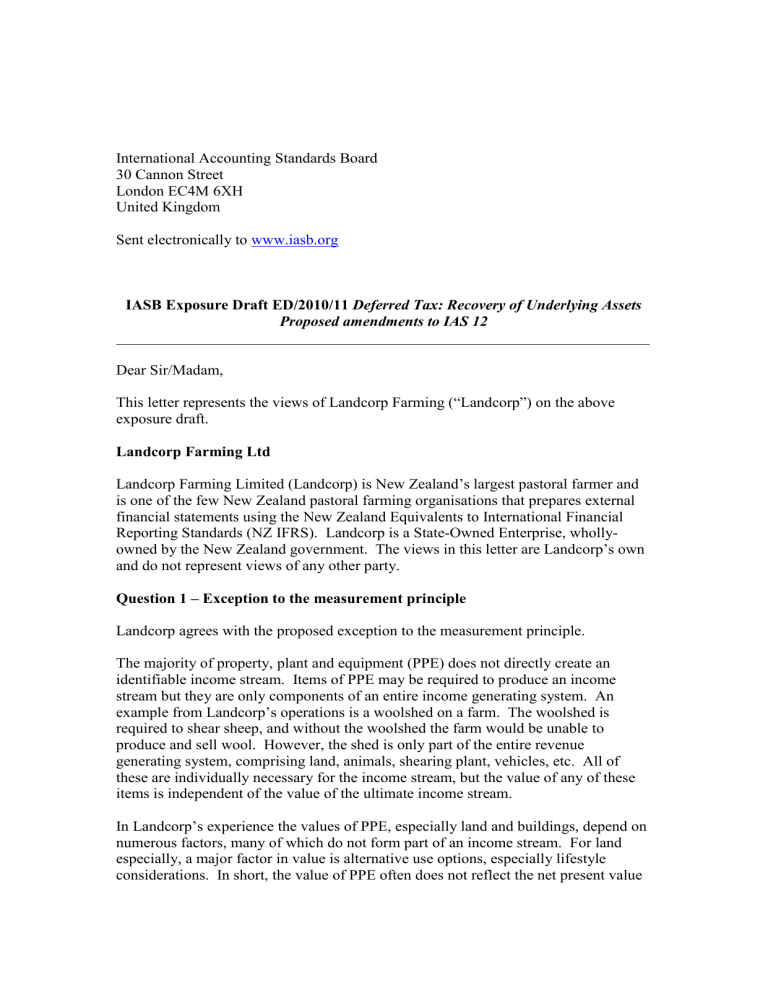
International Accounting Standards Board
30 Cannon Street
London EC4M 6XH
United Kingdom
Sent electronically to www.iasb.org
IASB Exposure Draft ED/2010/11 Deferred Tax: Recovery of Underlying Assets
Proposed amendments to IAS 12
Dear Sir/Madam,
This letter represents the views of Landcorp Farming (“Landcorp”) on the above exposure draft.
Landcorp Farming Ltd
Landcorp Farming Limited (Landcorp) is New Zealand’s largest pastoral farmer and is one of the few New Zealand pastoral farming organisations that prepares external financial statements using the New Zealand Equivalents to International Financial
Reporting Standards (NZ IFRS). Landcorp is a State-Owned Enterprise, whollyowned by the New Zealand government. The views in this letter are Landcorp’s own and do not represent views of any other party.
Question 1 – Exception to the measurement principle
Landcorp agrees with the proposed exception to the measurement principle.
The majority of property, plant and equipment (PPE) does not directly create an identifiable income stream. Items of PPE may be required to produce an income stream but they are only components of an entire income generating system. An example from Landcorp’s operations is a woolshed on a farm. The woolshed is required to shear sheep, and without the woolshed the farm would be unable to produce and sell wool. However, the shed is only part of the entire revenue generating system, comprising land, animals, shearing plant, vehicles, etc. All of these are individually necessary for the income stream, but the value of any of these items is independent of the value of the ultimate income stream.
In Landcorp’s experience the values of PPE, especially land and buildings, depend on numerous factors, many of which do not form part of an income stream. For land especially, a major factor in value is alternative use options, especially lifestyle considerations. In short, the value of PPE often does not reflect the net present value
of future economic benefits. This means that considering changes in value to have a consequent tax effect is incorrect.
Question 2 – Scope of the exemption
Landcorp considers that the scope of the exemption should include biological assets valued at fair value. Landcorp’s biological assets are predominantly livestock used to produce either agricultural produce (e.g. milk and wool) or additional animals for sale
(e.g. lamb meat, beef, venison). On this basis Landcorp’s biological assets are akin to
PPE and should have similar accounting treatment.
Question 3 – Measurement basis used in the exception
Landcorp largely agrees with the proposal for the measurement basis. Landcorp considers that the proposal should include guidance around the probable timing of
‘recovery through sale’.
The tax applicable in some jurisdictions will vary depending on the time an asset is held. Landcorp, for example, is taxed on the capital gain of any land sold within 10 years of purchase. After this period, however, the capital gain is entirely tax-free.
Land-trading is not part of Landcorp’s business and any land transactions Landcorp undertakes are reviewed to ensure they are not subject to this criteria. Under the current IAS-12 criteria, Landcorp is required to record a tax liability for any capital gain on land purchased within the time period, even though Landcorp has no intent to dispose of the land within the taxable time period.
In addition, additional guidance is required for assets that are likely to be used for a period prior to the presumed disposal. At what point does an asset pass from the
‘disposal’ category to the ‘use’ category?
Question 4 – Transition
Landcorp supports the proposal for retrospective application. As the proposed changes represent a change in the underlying basis of calculation of taxation liabilities, Landcorp considers that presenting the change as a single reporting period would be misleading.
Yours sincerely
Richard Perry
Chief Financial Officer
Landcorp Farming Ltd
